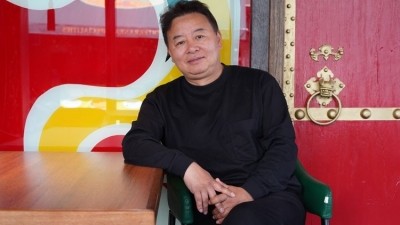Fuchsia Dunlop: Pearls of Wisdom

In China, masterchefs traditionally mislead their apprentices, giving erroneous instructions or adding vital ingredients to recipes in secret. A lot of gourmets believe that many of the greatest recipes in the history of the cuisine died out with the masters that made them.
I consult for three restaurants in the West End. Barshu [in Frith Street, Soho] opened in 2006 and is the flagship and the smartest in the group, serving authentic Sichuanese food. In 2008 we opened Baozi Inn in Chinatown which specialises in snacks from Sichuan and Northern China. Our most recent restaurant Bashan [opened in 2009] is close to Barshu and serves Hunanese food.
A lot of Chinese restaurants hide away the interesting dishes and tend to present Western diners with a set menu of more familiar items, which is a shame.
It’s not essential to have Sichuanese cooks in a Sichuanese restaurant, but it takes a long time and requires real immersion in the cuisine. Similarly, it takes time to train non-Chinese chefs: seemingly basic skills that every chef has are actually quite difficult to acquire. This problem is compounded by the fact that many Chinese restaurant chefs don’t speak English.
I’d been meaning to open an authentic Sichuanese restaurant in London for some years, but I had limited restaurant experience. I got introduced to a Chinese restaurateur called Shao Wei and we hit it off immediately. I write the menus, train the chefs to some extent, deal with the PR, eat there and generally keep an eye on things.
In China there is no conceptual divide between ‘meat’ and ‘inedible rubbery bits’ when butchering animal carcasses: the Chinese traditionally favour the kind of nose-to-tail eating that Fergus Henderson could only dream of.
I was the first Western person to complete a professional course in Sichuanese cookery. The biggest barrier was language, I speak fluent Mandarin but the Sichaunese dialect is very hard work.
Hunanese food is getting popular in London. There’s a new place in Bethnal Green Road that Giles Coren reviewed recently, Local Friends. The cooking – which utilises pickled vegetables and smoked meats – is big on chilli heat, but without that Sichuanese sweetness.
Unlike my first two recipes books [which concentrated on Sichuanese and Hunanese food] my most recent book doesn’t focus on one region. The intention was to inspire people with the idea that Chinese home cooking can be really good everyday fare with quick, healthy and delicious recipes.
Pretty much every Chinese kitchen, domestic or professional, will have a jar of MSG tucked away somewhere. I don’t find it a necessary product myself – I buy good ingredients and make my own stocks – and as a sort of ambassador for Chinese food I’d be shooting myself in the foot if I advocated using it in my recipes.
Controlling the heat is the key thing to master when using a wok. A classic mistake is burning seasonings and aromatics by putting them in oil that’s too hot. Get the wok really hot, add the oil and then quickly add your ingredients.
Sichuanese is one of the regional Chinese cuisine that travels best – once you have your core Sichuanese seasonings you can use whatever raw materials you have to hand. A lot of the other Chinese cuisines require fresh ingredients that are hard to source outside China.
Since the Government tightened up the rules on immigration it has become much harder to offer authentic regional food in this country. We’ve got a good team at the moment but if it was easier to bring people over we’d be able to open more restaurants.
Chinese food in the UK has come a long way over the past 15 years or so. There are more Chinese people here, students in particular, which has increased quality and authenticity. There was a stereotype of Chinese food being junky and cheap, but that’s long gone – just look at the likes of Hakkasan and how trendy dim sum is.
Fuchsia Dunlop’s latest book, Every Grain of Rice, is out now (Bloomsbury, £25)















